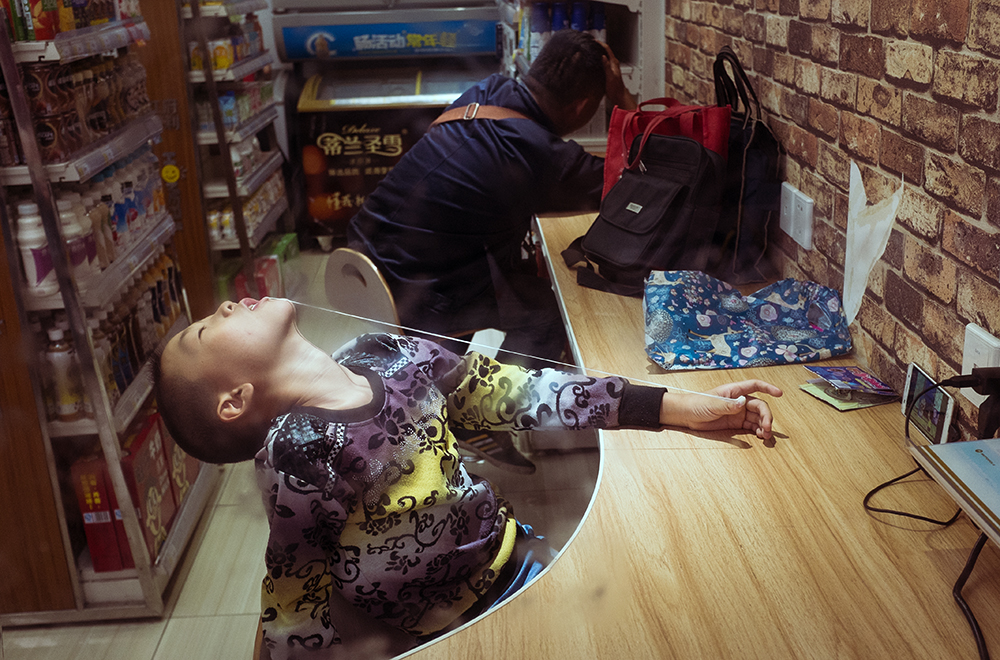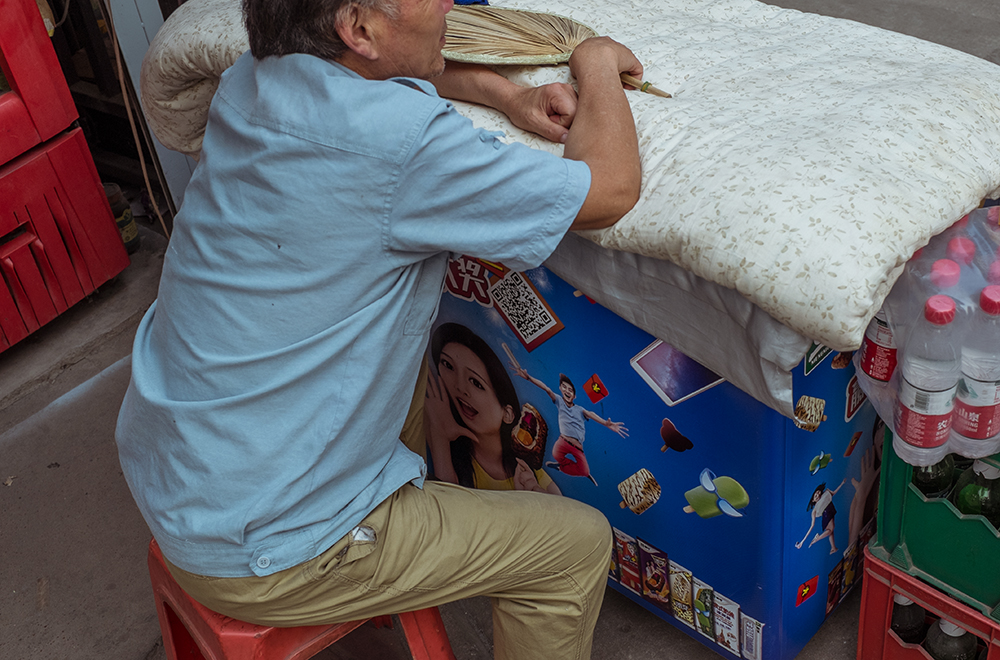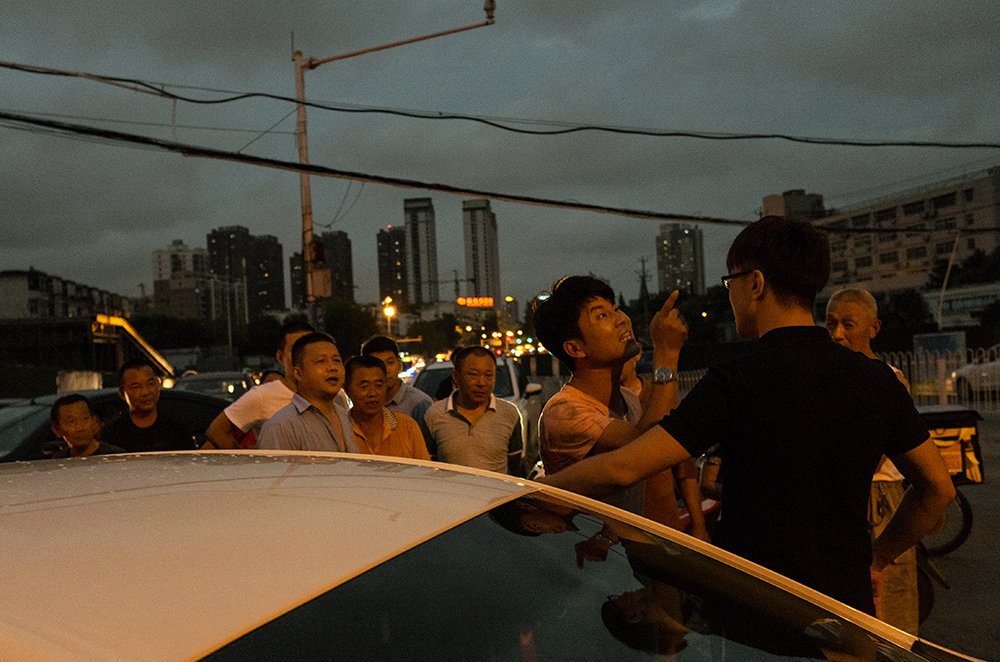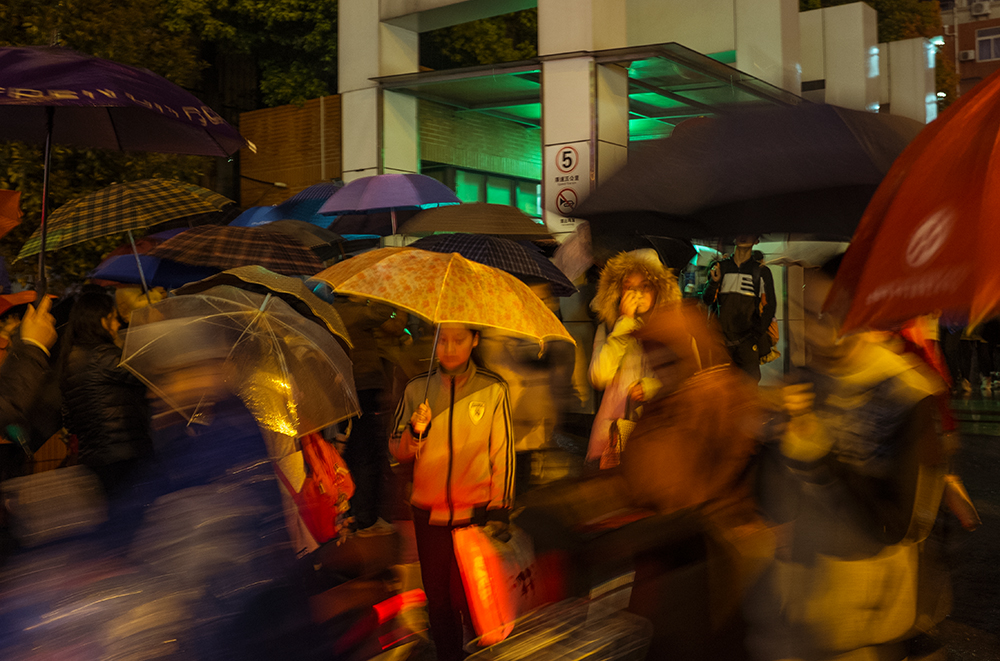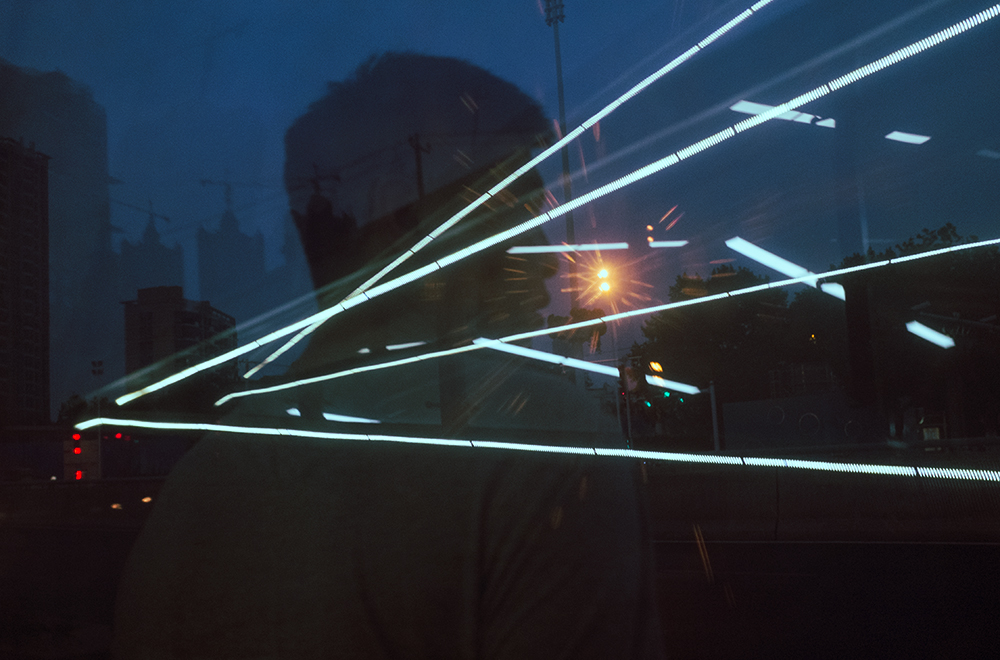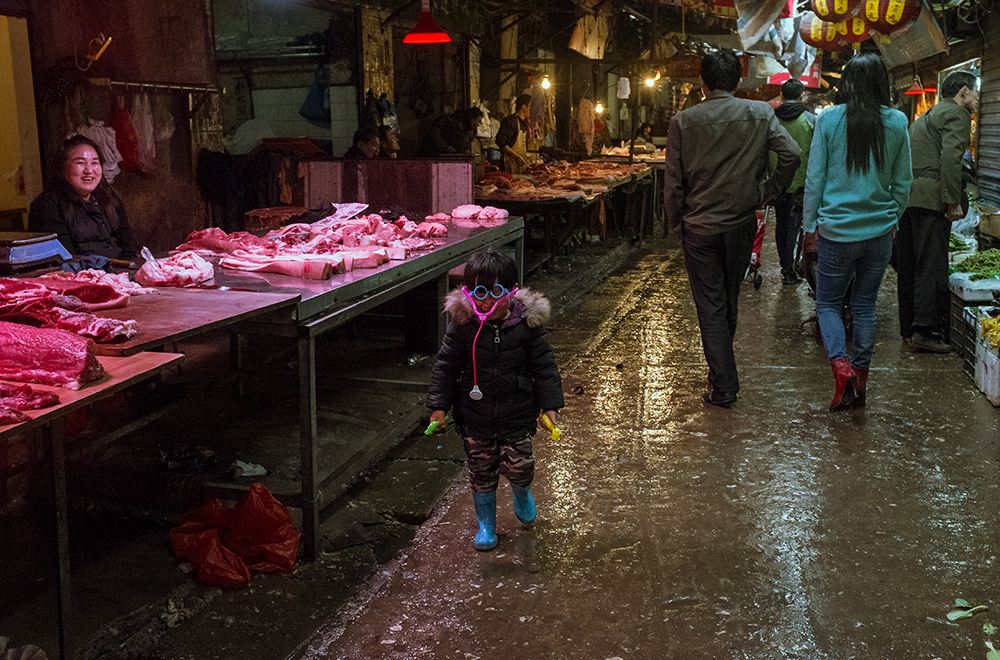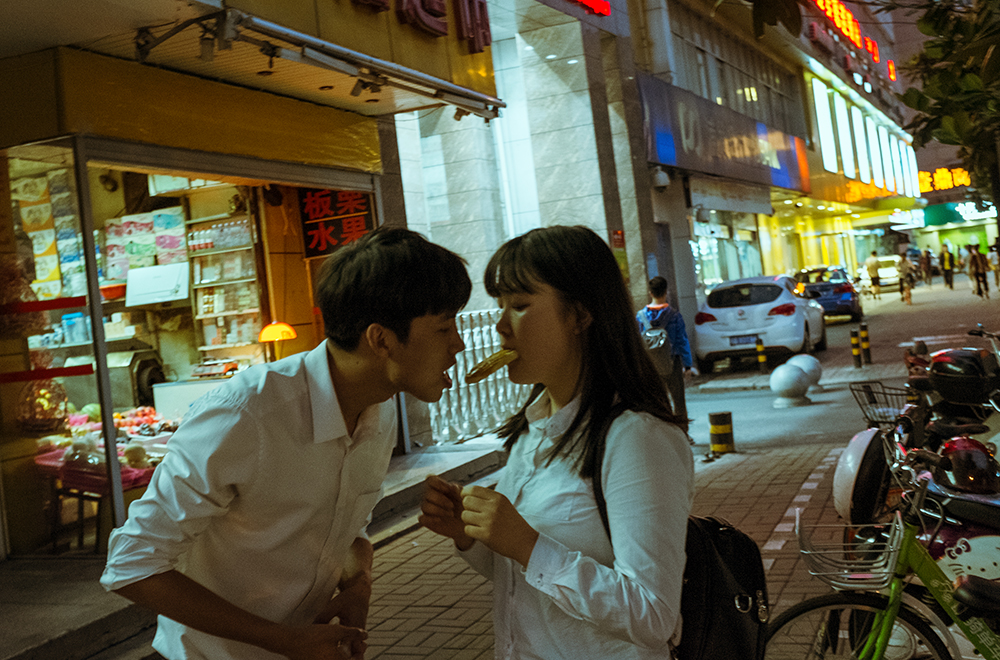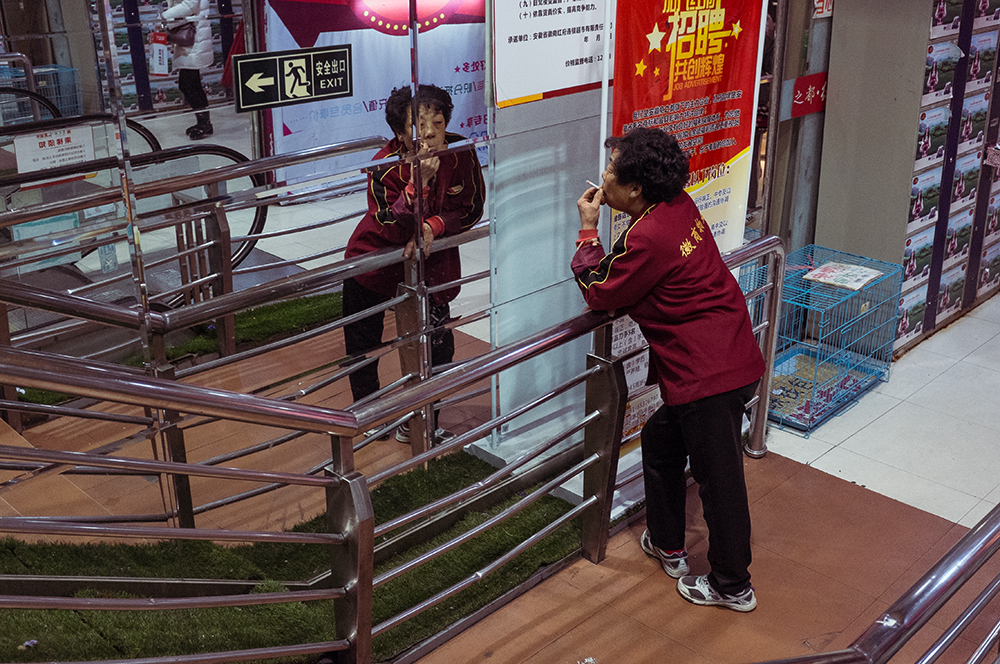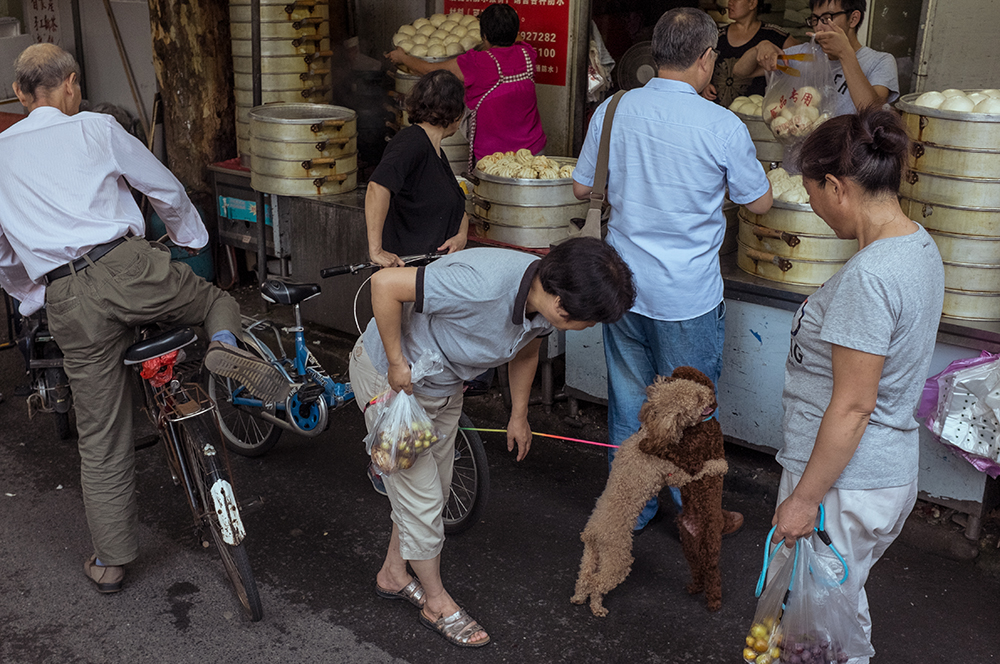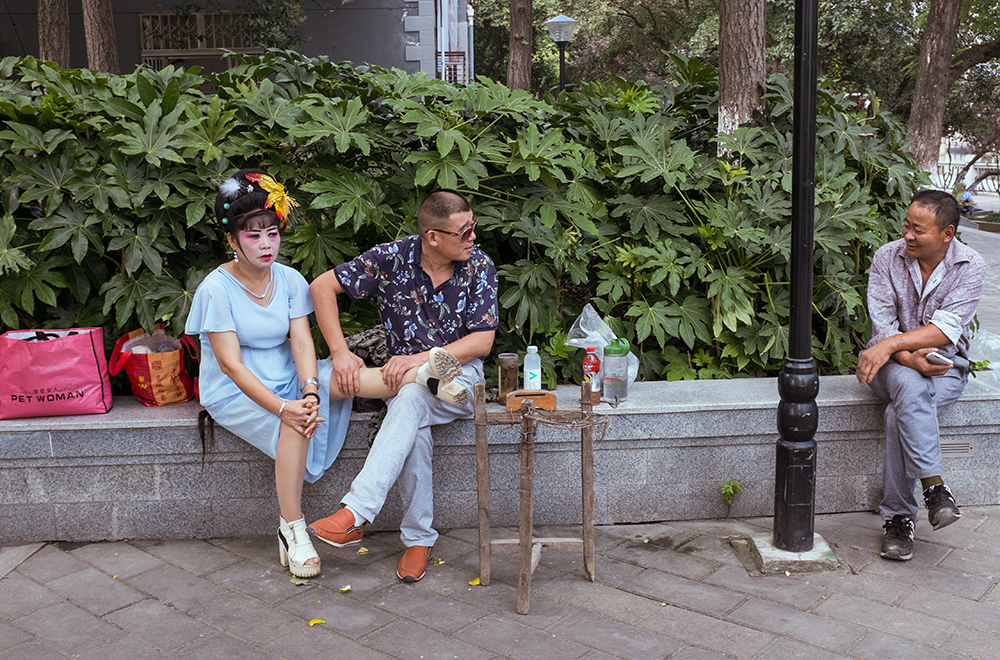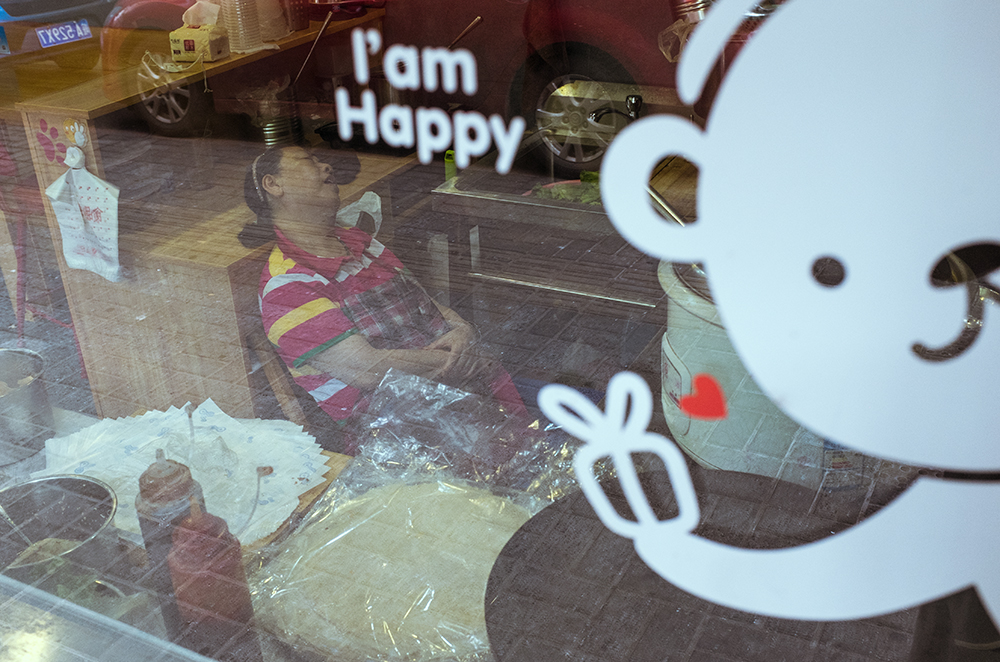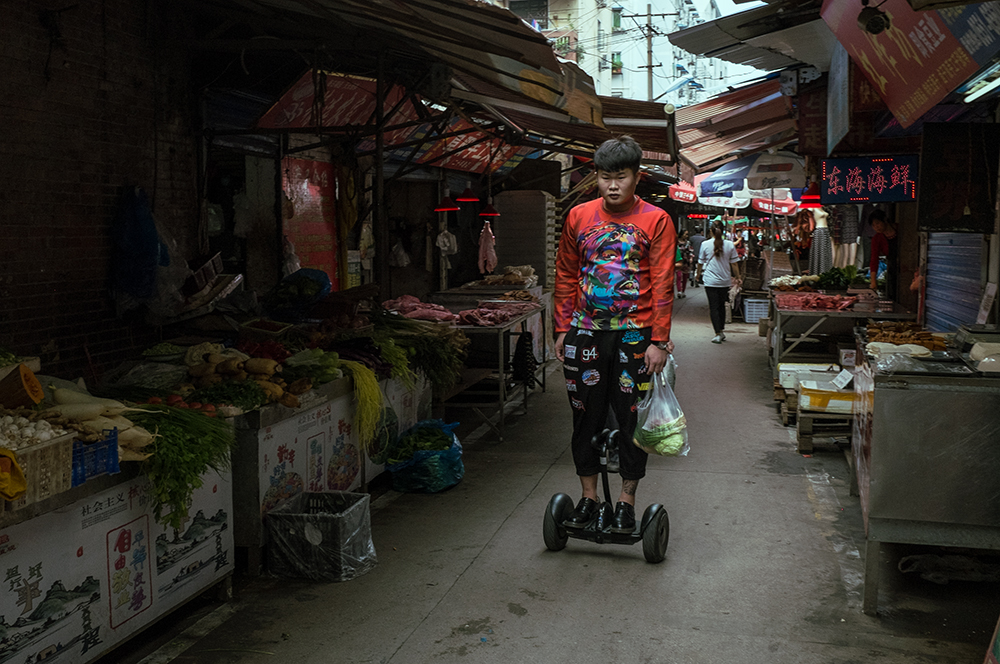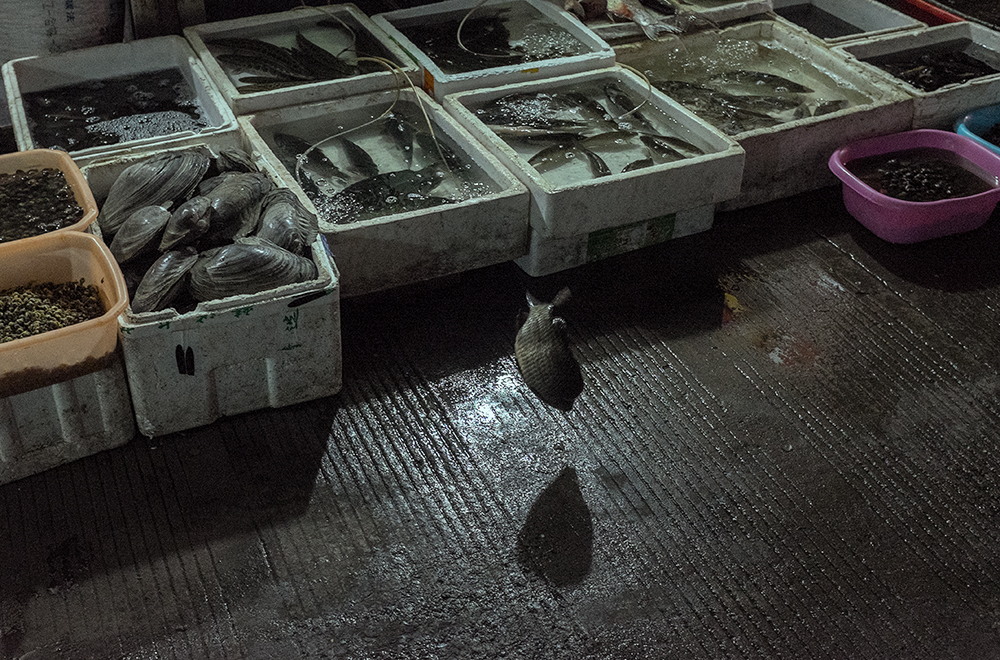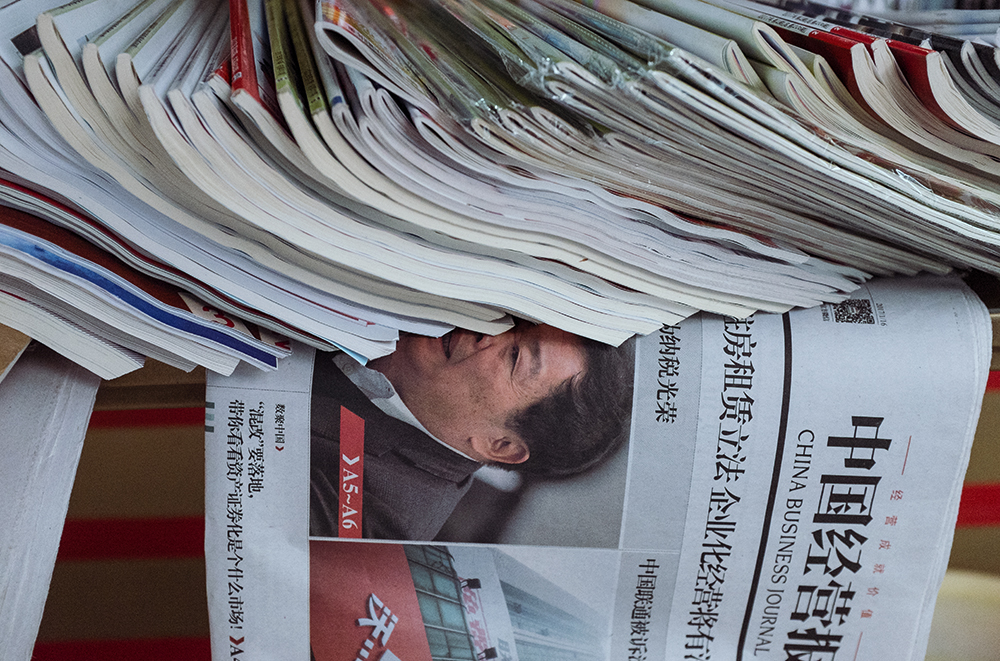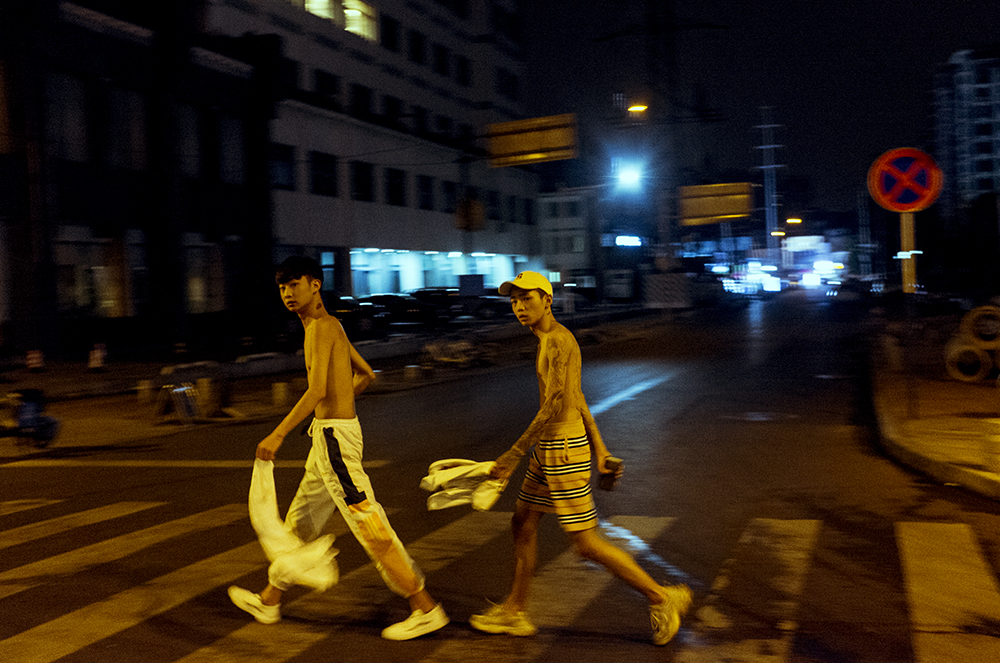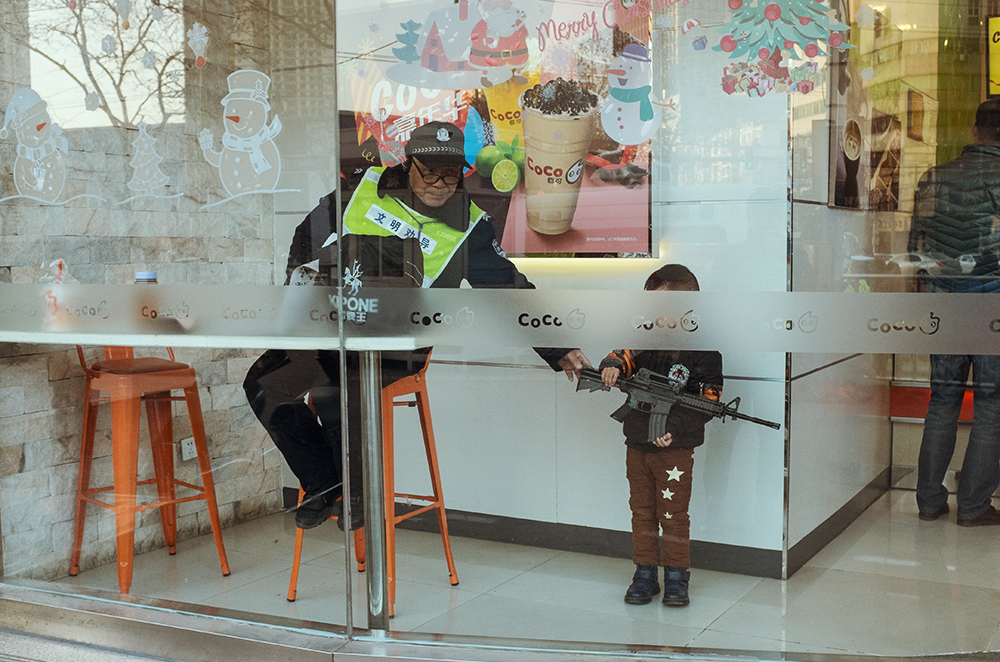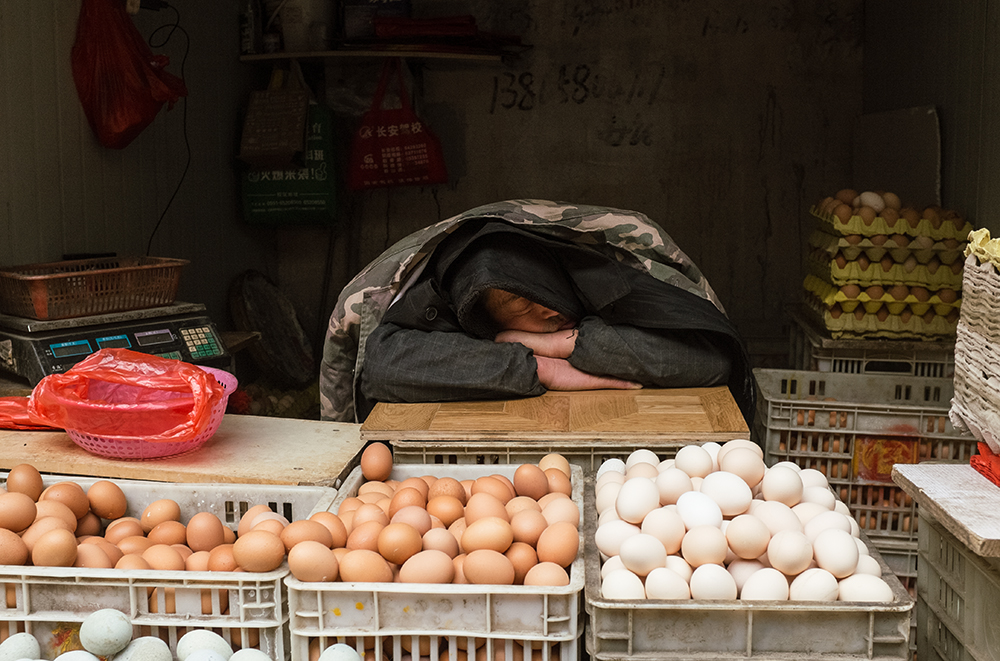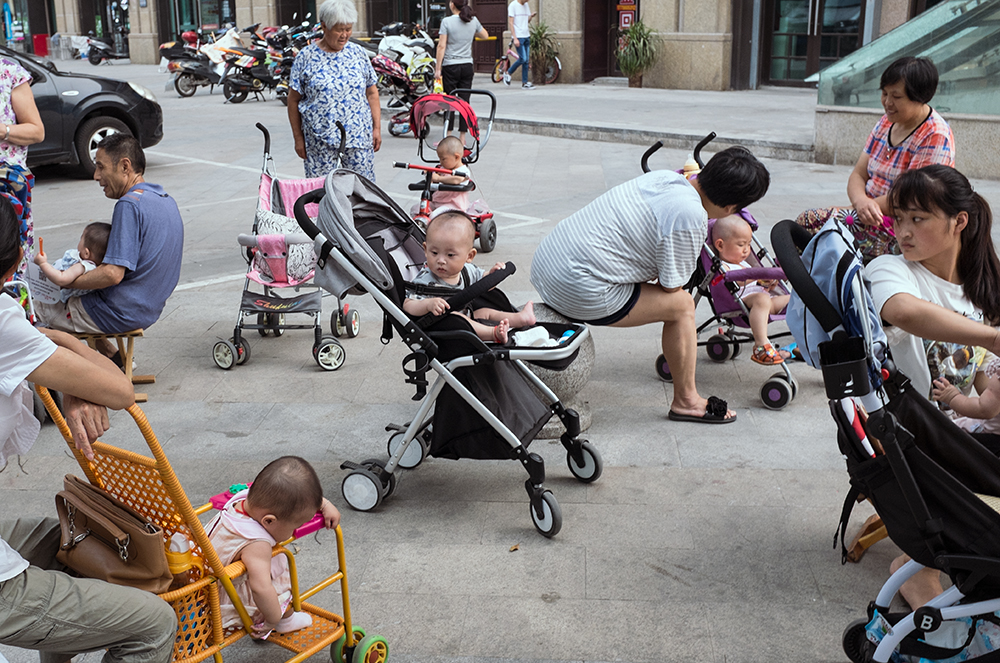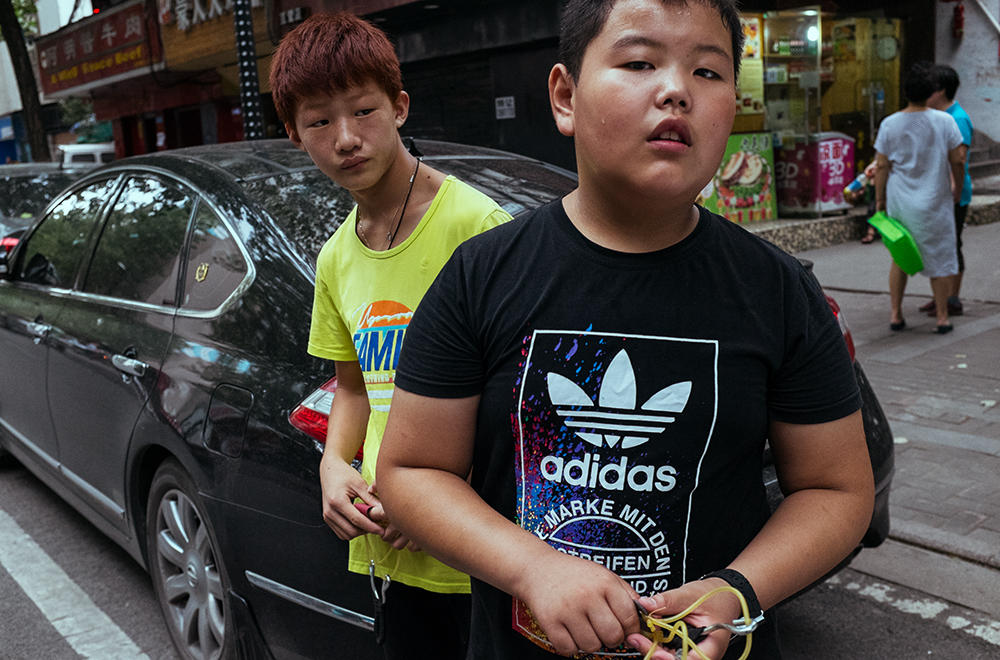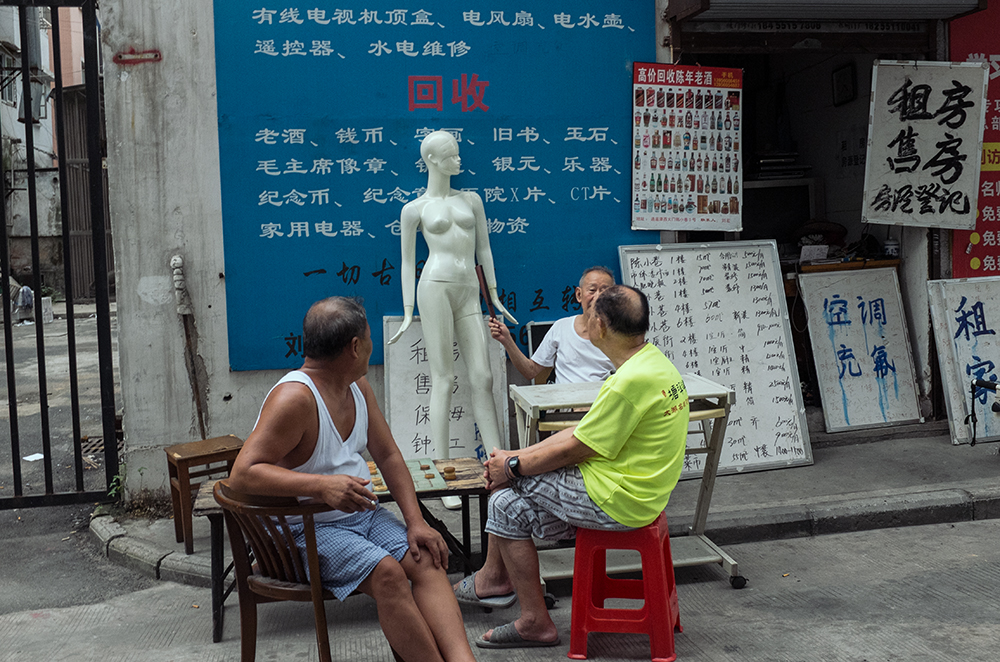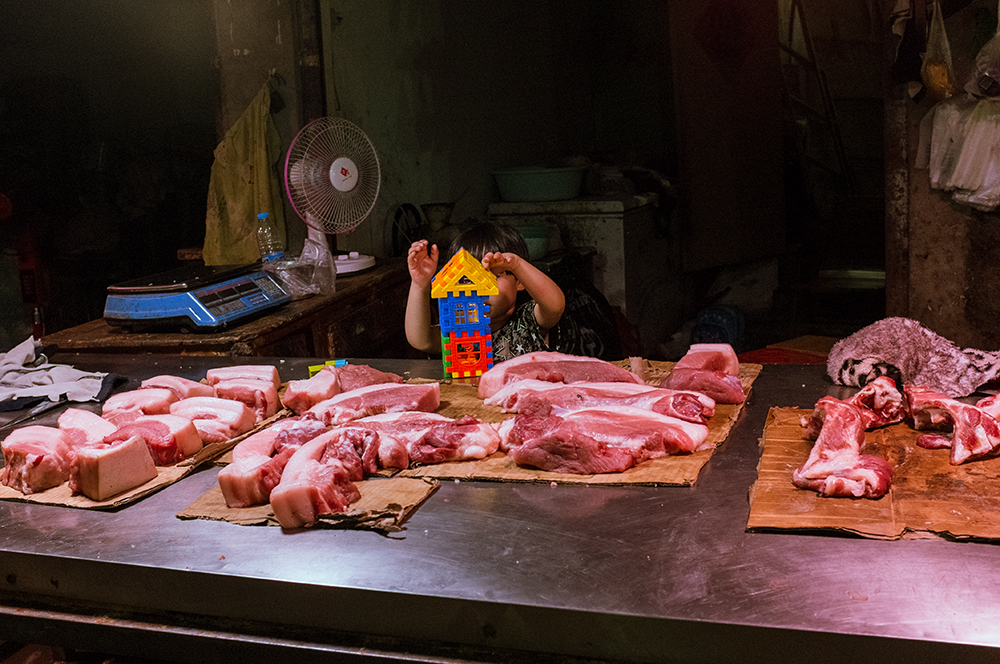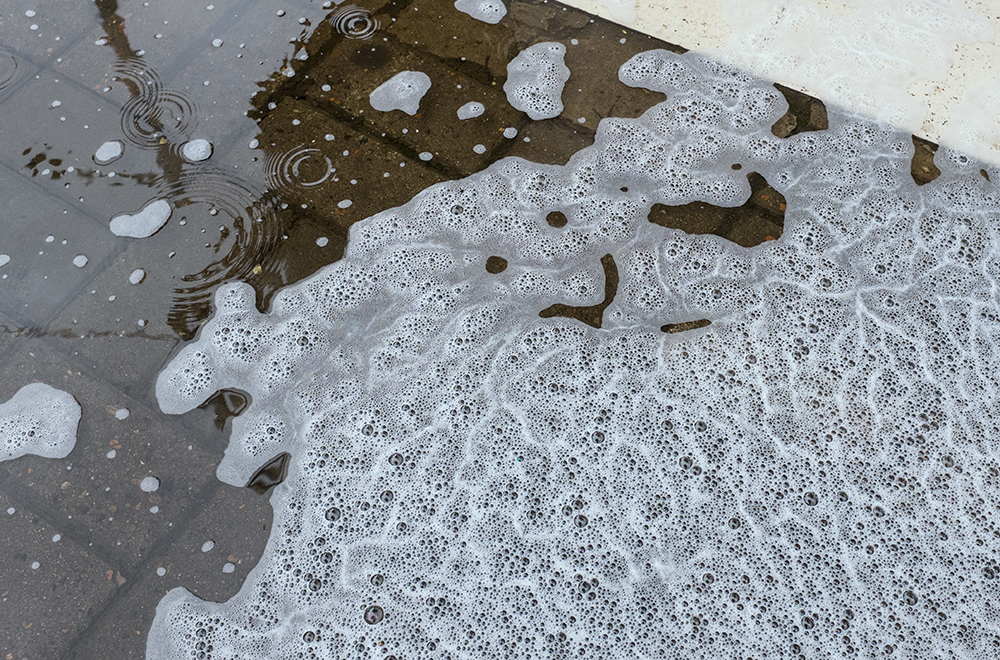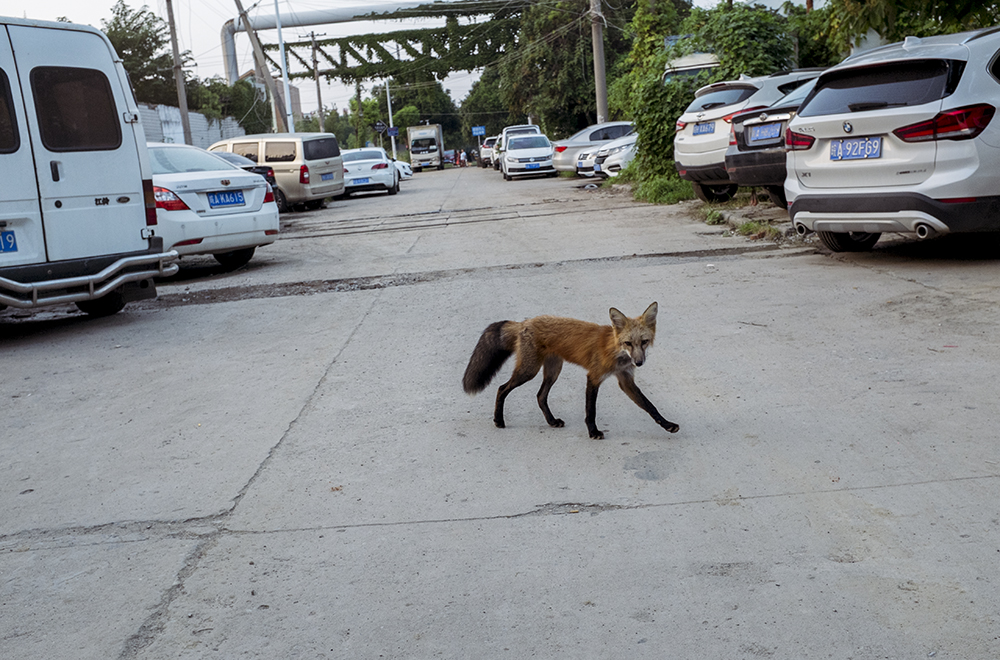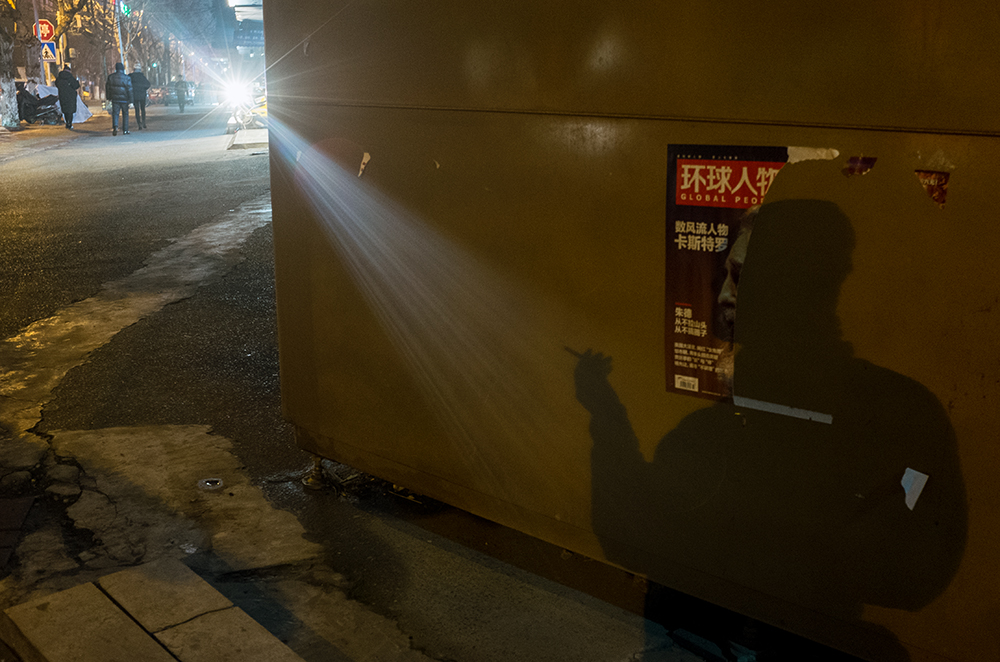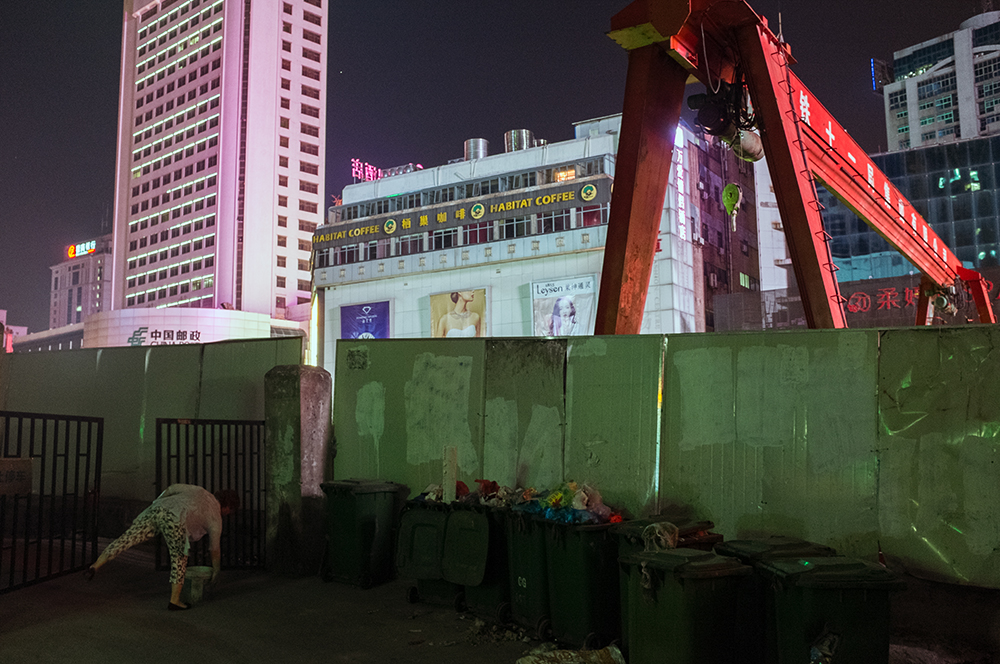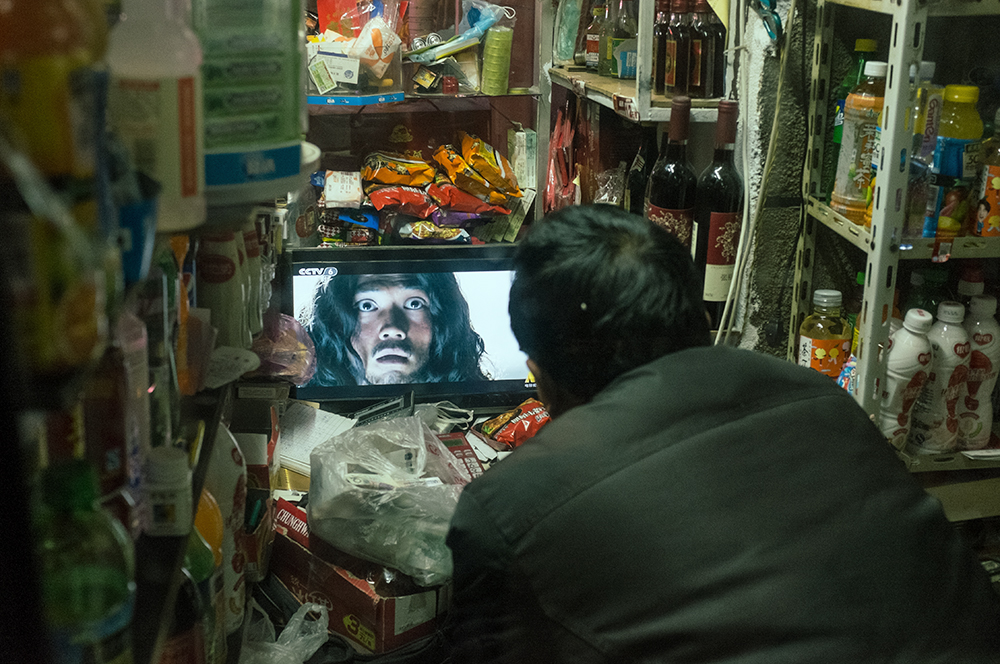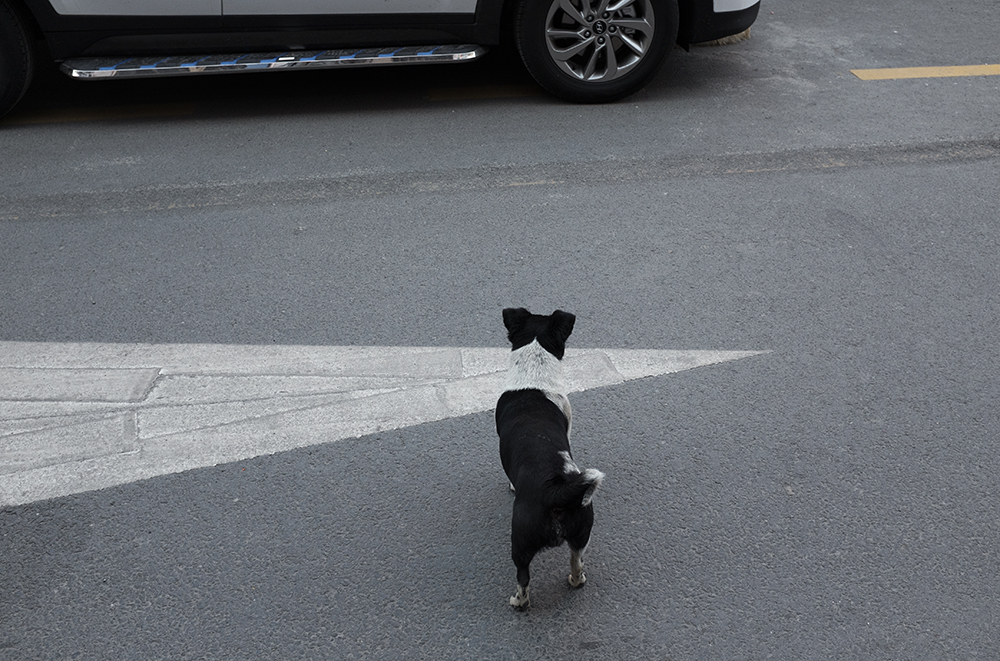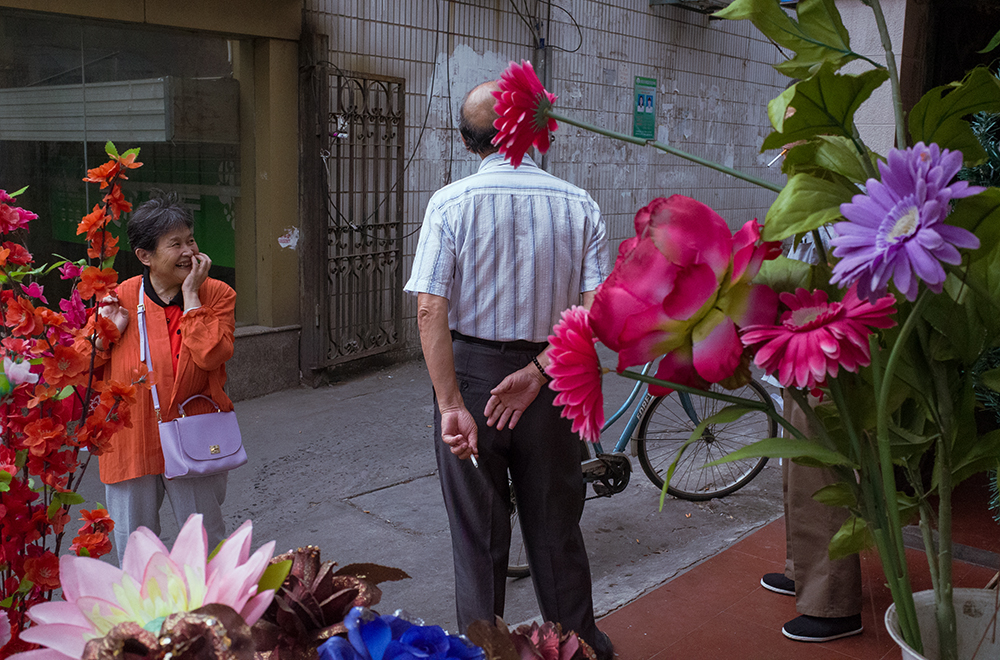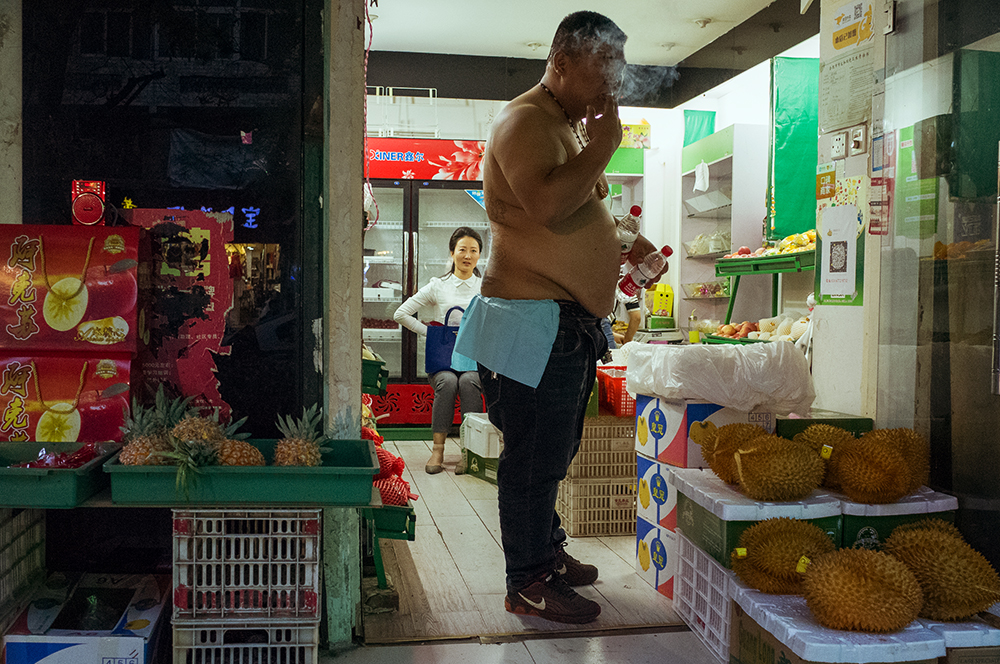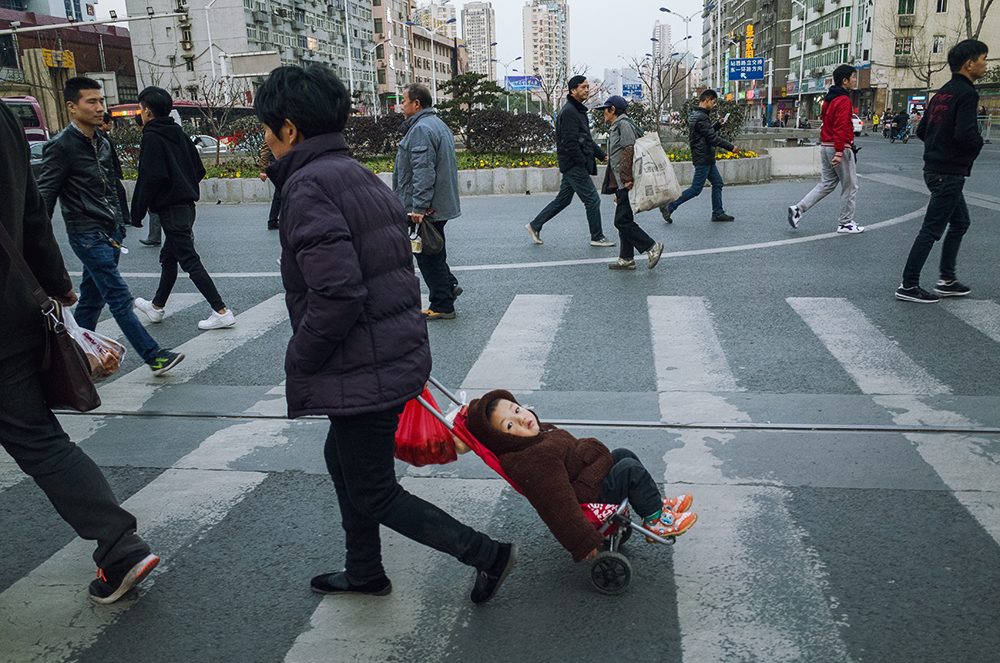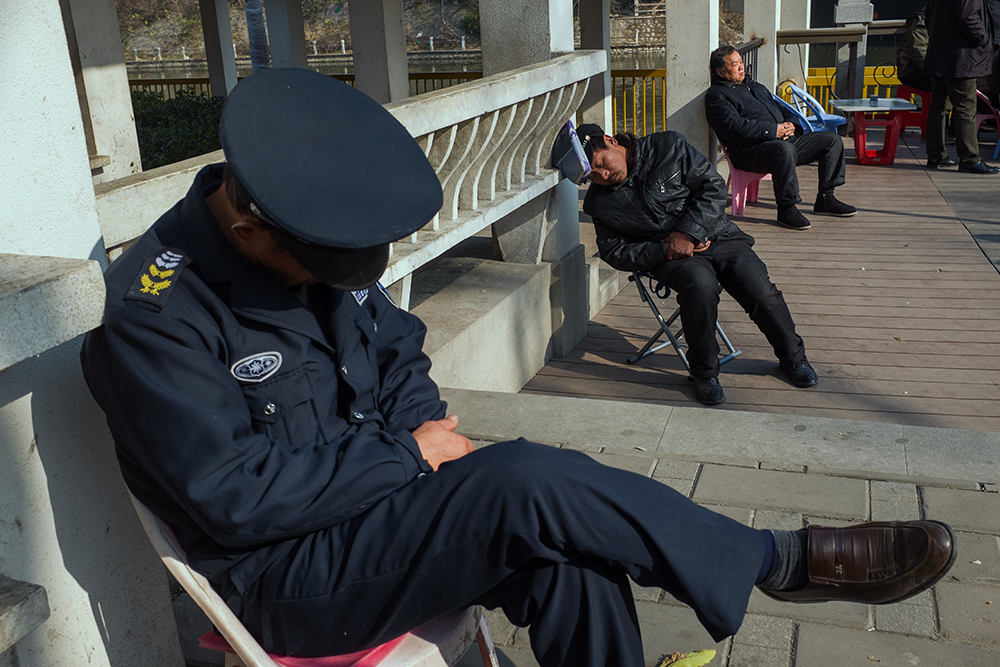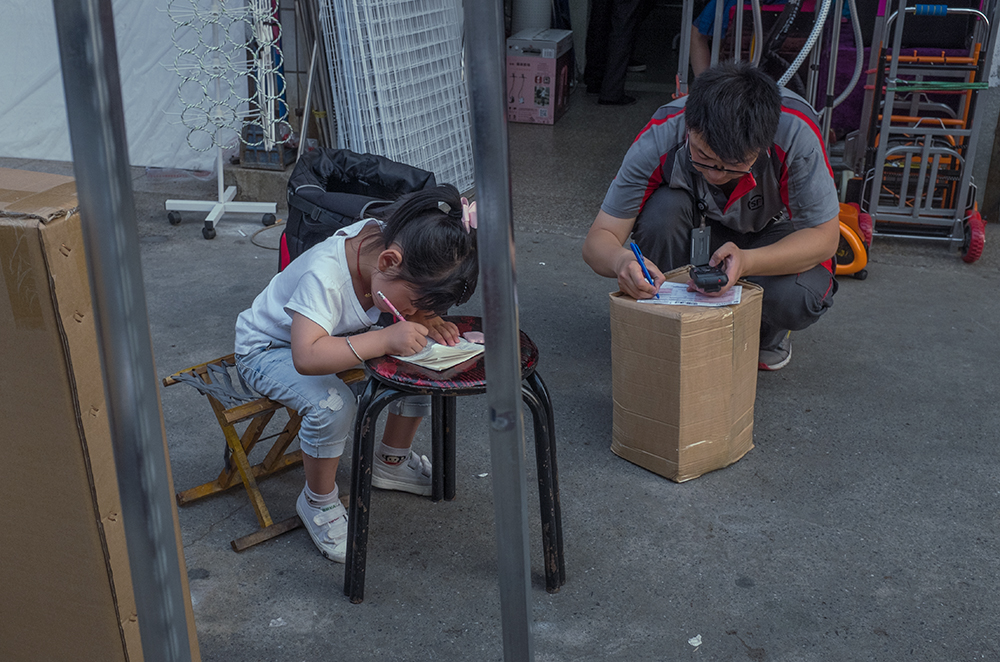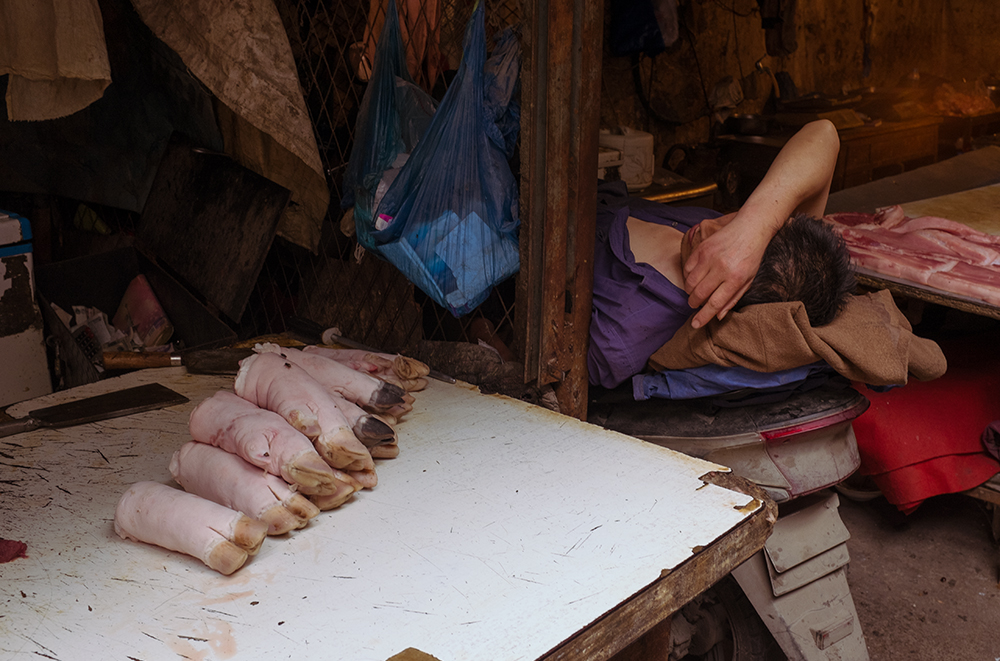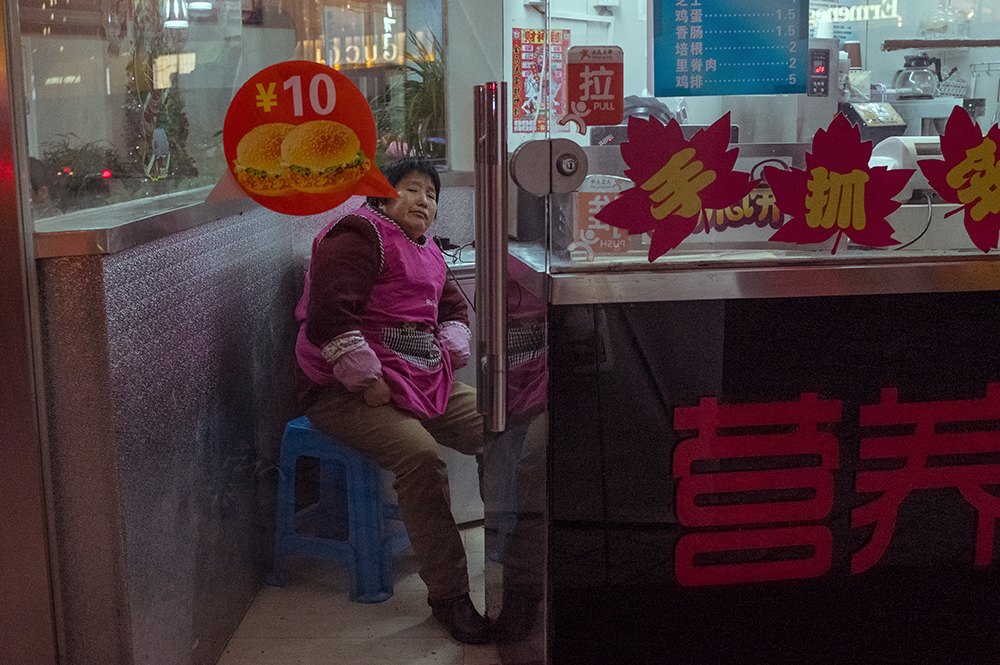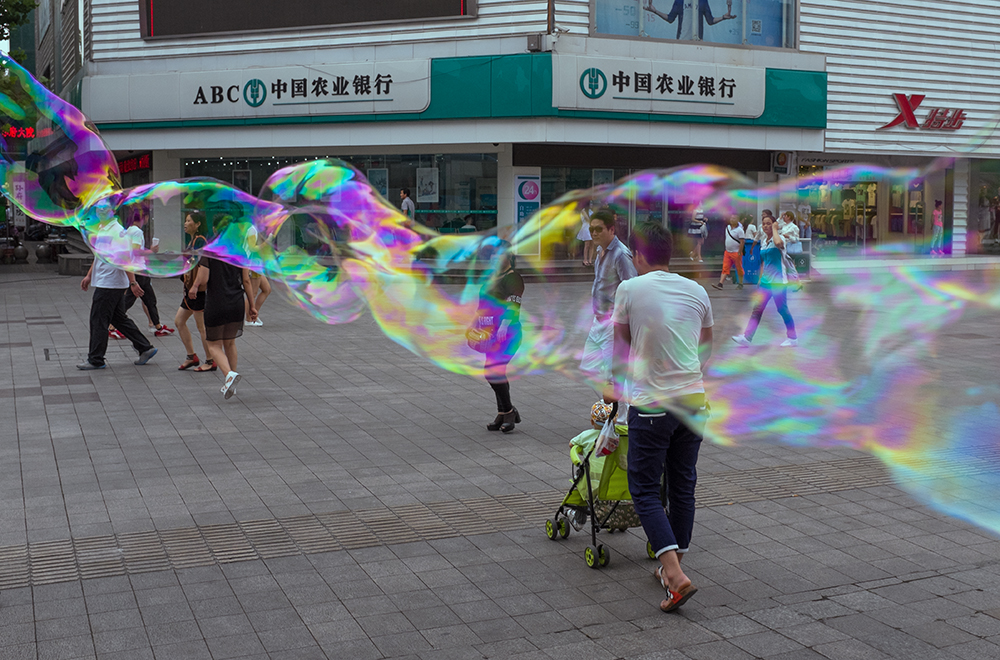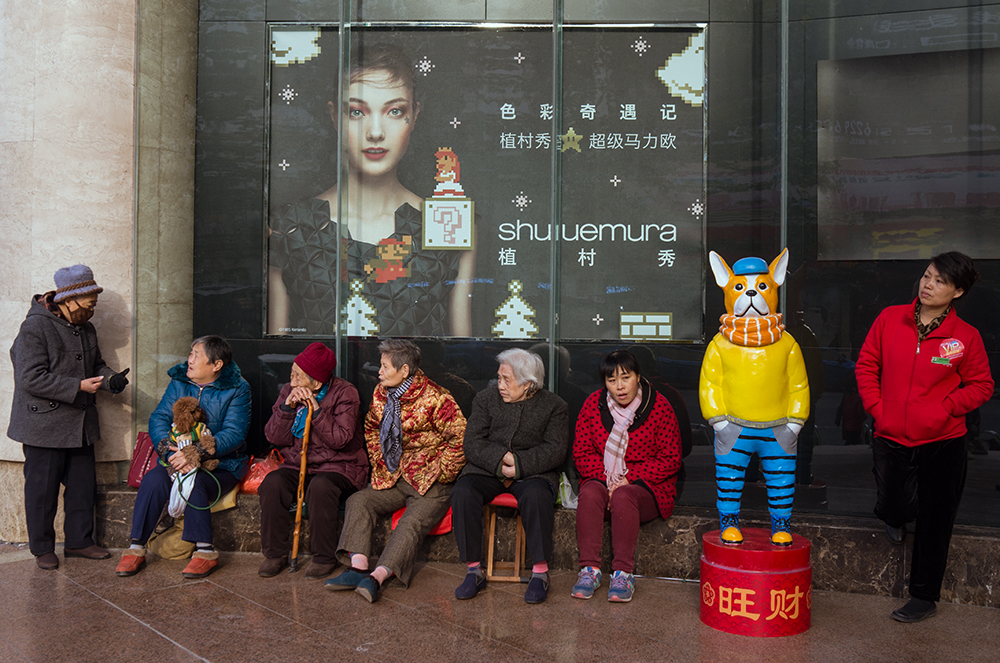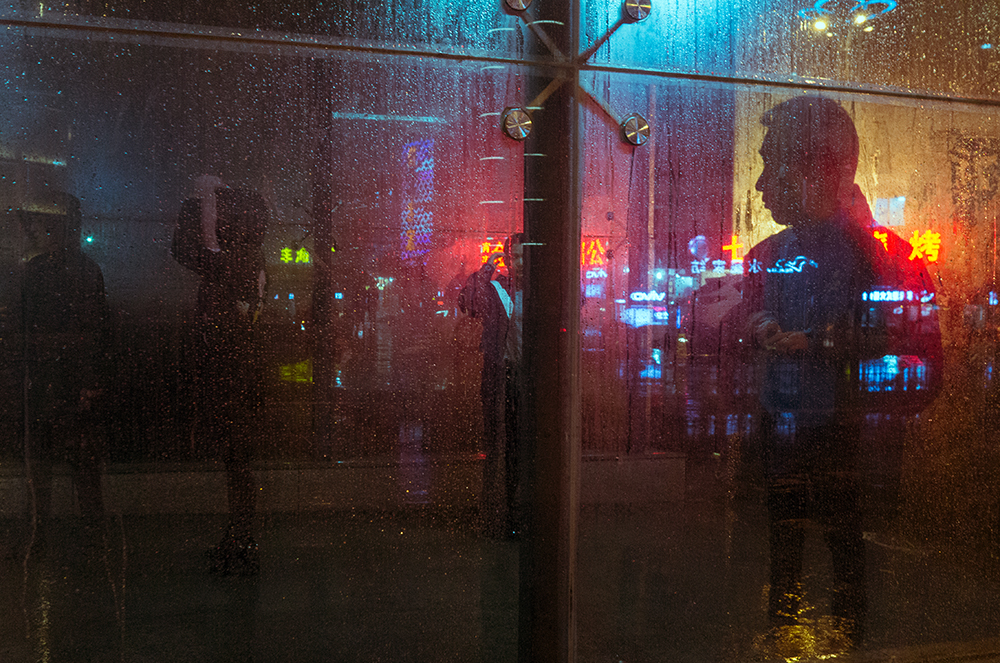Strolling Around Hefei: A Conversation with Grinch Liu
Grinch Liu
1982
Chinese Street Photographer
Born in Hefei
“Photography is not brain surgery. It’s not that complicated. It’s easier now than it was before, but before it wasn’t that hard. It was reasonably easy. It’s not the ease; it’s what you do and how you do it and how you construct your life and your vision.”
Interview by KC Chien
Hi everyone, my name is Liu Tao (Grinch Liu), I am from Hefei, Anhui Province, China. I first started as a waterworks electrician in 2003, then from 2007 to last November, I’ve been at Hefei Water Supply Company reading water meters. I’ve been unemployed since and I’m currently a freelance street photographer.
When did you first start photographing the streets of Hefei? What prompted you to start shooting for so many years?
I first started around the end of 2010, and I think it was by chance. All of my friends had bought cameras and liked to go to the wilderness to take photos of the landscape. Back then, my job was still reading water meters. I would ride my motorbike back and forth to the same area over and over again, and then continue to take photos aimlessly on the street after work. Since 2011, I have been sharing the photos I took on the street at the end of each month on social media platforms like Weibo, and I haven’t stopped.
It was all more like a natural progression — there were both encouraging and frustrating moments — but in the end, I still discovered my spiritual pursuit.
What kind of cameras and lenses do you usually use? Do you only capture still images or do you also shoot moving video footage?
I’m rather nostalgic about cameras, I guess. Leica X2, Fujifilm X100S and Ricoh GR, I use fixed lenses and they are all relatively compact. I normally use a camera for stills, and from time to time, I would use my phone to capture some moving footage.
Have you ever studied photography? How did you master more professional photography knowledge over the years?
I never studied photography, but I used to like drawing cartoons or designing illustrations digitally on the computer, which probably helped me understand what it is like to be ‘in control’ of the image when taking photos. Of course, the most important factor is to spend a lot of time practicing.
Who are some of your favourite photographers?
Elliott Erwitt, Moriyama Daido, Robert Doisneau, Bruno Barbey, Chien-Chi Chang, Chang Chao-tang, Liu Heung Shing, An Ge… I still look at many photo compilations — I like works that have developed over time, those that are persistent and rebellious.
How would you describe your style of photography? What kind of comments have others made about your work?
I think I have quite a diverse style. Sometimes I would feel a certain level of boredom in city life, almost like a confusion about its lack of vitality. But occasionally, I would also be moved by what is happening on the streets. I often put myself in other people’s shoes to experience life, and I also frequently think about my own emotions and the future.
People have commented on my work by saying: “interesting”, “absurd”, “your city is so wild”, “dramatic”, “wow your place is so fun, I’ll go shoot in Hefei next time”. Some also say: “your photos make the city look like Nanjing ten years ago”. Once, when I was exhibiting abroad, someone commented saying, “China is so beautiful today, why is this person taking such messy photos…” I was right next to them, but when I heard that I just left in silence, haha.
What time of the day do you usually go out to shoot? How much time do you spend on an average day walking around the city?
I don’t have a fixed schedule, but I would go out and take photos almost every afternoon. I started from four or five hours a day at the beginning to six or seven hours a day now — I like to be alone on the streets to experience its repetitive but ever-changing “scenery”. Usually, I’ll shoot until after 9PM before going back home. I think photography requires a lot of patience and a mentality of “doing nothing”, which is probably more like a performance artist’s state of mind.
The photos you took became popular in China because of your unique style, which attracted lots of attention. Did this situation have any impact on your life?
It was in October 2014, I was still reading the meter that evening before I accidentally looked at my phone and found out that the photo collection I shared with Sanlian Lifeweek Magazine had been posted on Weibo — receiving lots of likes and comments. All of a sudden, calls kept coming in. I then walked to a small park and sat on a chair looking up at the branches of the trees overhead for a while.
After that, I was gradually invited to interviews with CCTV, Anhui TV, Hefei TV, newspapers and on the radio. There were even reporters in front of my workplace. Back then, I used to go to McDonald’s for my lunch break during work, and when the TV crew found out, they followed my routine and said to the waiter, “Do you know how popular he is now?” I used to go to that McDonald’s almost every day and kept a stack of menu order forms, which I originally planned to use as a backdrop for a photo exhibition later, but I rarely went there ever since.
Anyway, it was a very busy six months. I was on the phone, sending emails and meeting journalists from all over the world who came to Hefei every day…
My boss at my workplace also started asking me if I had any ideas or suggestions, but I said I still wanted to continue reading water meters. In fact, it was because it made sure that I had time to go out on the street and take photos. It was an awkward period at work, but I didn’t change my job, and during the first month of my popularity, I shared photos on Weibo as usual. It’s a habit that persisted all the way to today. I even went to the same little park this afternoon and sat on the same chair to look at the trees overhead.
Frankly, most of your photos are based on the common everyday life in Hefei. There are no grand scenes or deliberate themes, but when you look at each photo, there is always a subtle coinciding intention. Can you share some of your most memorable moments or narratives?
I think a lot of my inspiration comes from the streets. Strolling around the city, I see the same people in food markets, shops, corners and alleys everyday — whether that’s in rain, sunshine, wind or snow.
A vegetable market stall-holder often asks me, “What episode of this TV series are you up to filming today?” The fruit stall-holder in his tractor would always bump into me whenever he sets up his stall on that road, we met so frequently that he always thought I was a policeman following him around.
Once I heard the kid from the snacks stall-holder’s say to another kid, “My dad says this guy who comes around with a camera everyday is a psycho…”. There was a sanitation worker who would see me and scream “Ghost! The ghost is here again!”, I think it’s probably because they would see me in the early hours of the morning and at midnight after work too.
There was also a fat security guard that I took a picture of before. He had never spoken to me, but when he met me on the street after I got famous, he asked me quietly, “Could you lend me two hundred yuan?” When I refused, he shouted, “Are you afraid that I won’t pay you back?”
Sometimes it’s sad to think about it. When I was at work, my old colleagues would often ask, “Are you making any money from your photos? If you don’t make any money, why the hell are you doing this?” All in all, it was a lot of fun but a lot of frustration too…
What does it mean to you to keep capturing the streets of Hefei for so many years?
For me, street photography is often a process of solitude and reflection — it has a deep enlightening meaning to it. It’s like an extra outlet in your path, allowing you to see a different life… allowing me to feel more of a connection between my environment and myself.
I was quite into art when I was at school, but unfortunately I wasn’t good at studying, and not a single person in my class got into a proper high school back then, almost all of them went to vocational high schools, and I was, too, very lost in my youth. Looking back, it feels like everyone went their own way… When I’m on the streets, it feels like I’m seeing an endless repetition of the same movie.
Now that I can view things more independently and not be influenced by my surrounding environment anymore, I actually just try to find my own way to have fun on the streets. I reflect about myself and my surroundings again and again. I think and see persistently, and remain curious about everywhere and everyone.
The Chinese always use “ten years” as a time scale. It’s like a mileage, because a lot can happen in ten years. It’s been over ten years since you started shooting, how has Hefei changed in those ten years? How do you feel about these changes?
I didn’t deliberately try to capture the change in the city, but I do feel that it’s different. Hefei’s urban area has grown to become a major portion of the city, and gradually, neighbourhoods with the same characteristics as other cities are emerging. The population has also grown from 7 million to nearly 10 million over the course of these ten years.
A few years ago, it was almost impossible to find coffee shops in downtown Hefei, but within the past two years, many have opened at once. People are also relying more and more on public bicycles, takeaways, online payments, online videos etc. House prices doubled between the end of 2016 until the Chinese New Year that year. At that time, people were talking about house prices everywhere. There are also more and more young people on the streets…
At 10PM, you’ll see high-school-student-looking kids out having fun juxtaposed with high school students leaving evening tutoring sessions at night. It’s been a unique sight for the past four or five years. Those selling kids toys at the night market have switched to selling pet food for dogs and cats. The child I saw in a bathtub a few years ago as I passed by the dumpling shop during summer has now grown into a teenager skipping a rope. And there’s me: still dressed in the clothes as I did ten years ago, carrying that same camera. The fact that I’m forty makes me feel that I have less and less common language with the people of this city — it’s rather touching.
There is very little information about you personally. Often, we can only try to get a sense of your thoughts through the contents of your camera. Can you tell us a bit more about your daily life?
Actually, my daily life is all related to street photography. I’d rather be misunderstood by a stranger as a maniac or something than be stopped by someone on the street saying, “I know you, the meter reader photographer. Add me on WeChat!”, or “I heard you quit your job? Let’s add each other on WeChat…” I’ve had a couple of such encounters recently.
I think I do photography in a way that I do still wish I was like the air — to be unnoticed. If I were in another city I might not feel so uncomfortable about this because I’m actually quite an enthusiastic person, but I’m just not very talkative when taking photos…
I resigned from my meter reading job because the department was abolished and all my colleagues were transferred to the water supply and maintenance office, where the job was to sit on a recovery truck and fix water pipes. My colleagues all thought it was a good idea to come as they were, but I worked for a week and found that I was completely unable to take pictures on my own. The person in charge at that time said to me, “You think your photos are special, but that’s just because your job as a meter reader hypes the media…” I’ve heard the same phrase from many others already, but at that moment, I just pulled out my letter of resignation and handed it to the person in charge.
I’ve heard that you don’t use WeChat and your social media accounts are limited to Weibo and Instagram. What kind of presence do these social media platforms have for you?
Yes. I’ve been off WeChat for about three years now and I haven’t thought about getting back on it yet, although I still feel burdened every time I tell people that I don’t use it. Apart from the elderly I met in parks, I feel like I’m the only one around who doesn’t use WeChat. These past three years have been tough. Apart from Weibo and Instagram, I also use Facebook. There are still some functions I don’t know how to use, but I use it in the same way as Weibo, posting photos on it towards the end of every month.
Having asked you so many questions, is there anything in particular you would like to share with us?
It was a pleasure sharing these thoughts with you. Sorry for my limited writing skills, but I’d like to give you a quote from Elliot Erwitt, a photographer I adore very much, which I think is appropriate for everyone.
“Photography is not brain surgery. It’s not that complicated. It’s easier now than it was before, but before it wasn’t that hard. It was reasonably easy. It’s not the ease; it’s what you do and how you do it and how you construct your life and your vision.”


